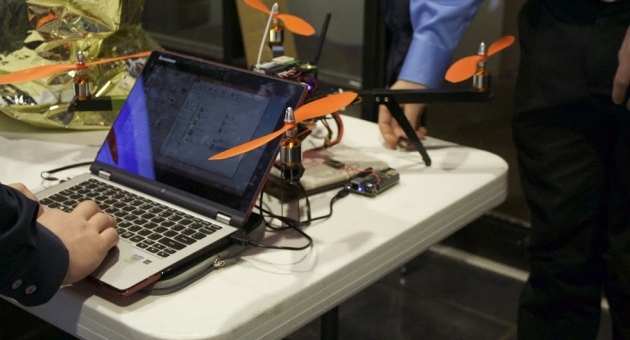
Temple’s College of Engineering is one of 25 institutions selected by the National Science Foundation–funded National Center for Engineering Pathways to Innovation to participate in the Pathways to Innovation Program. The program was created to assist schools with integrating innovation and entrepreneurship into their undergraduate engineering curricula.
Temple joins schools such as the University of Delaware, Clemson University, Illinois Institute of Technology, Oregon State University and Washington State University in the program. Pathways to Innovation is directed by Stanford University and VentureWell, a nonprofit higher-education network focused on innovation and entrepreneurship on college campuses.
“Stanford is well-known for its entrepreneurship, and we’re very pleased to have been selected to participate in this program under their direction,” said College of Engineering Dean Keya Sadeghipour, a co-leader of the project along with College of Engineering Associate Dean David Brookstein.
The initiative aligns with President Neil D. Theobald’s commitment to making Temple students real-world ready by fostering entrepreneurship and innovation so that they will be able to create their own success.
“Innovation and entrepreneurship are a big part of engineering’s national dialogue right now,” said Brookstein. “For a long time, engineering education has been about training students to do transactional analysis or problem-solving, but the engineering community has started moving toward teaching students to become innovators, as well as lifelong learners.”
Brookstein said that today’s engineering students will have a career of about 50 years, but the half-life of an engineering education is about five years. For that reason, he said, students are going to have to reinvent themselves during their careers, perhaps more than once. “We, as an engineering program, need to assure that these students are able to reinvent themselves down the line by providing them now with the skills to be innovators, entrepreneurs and lifelong learners.”
Currently Temple offers an elective in Entrepreneurial Engineering through the Fox School of Business, as well as lectures on design thinking and disruptive technologies and innovation as part of the College of Engineering’s capstone course, Senior Design.
Brookstein said the college will begin reviewing its current curriculum to identify at least three courses where an entrepreneurial module can be incorporated. He said the College of Engineering also wants to make entrepreneurship and innovation a bigger part of the Senior Design course.
Engineering will also collaborate more closely with the Fox School of Business; Dwight Carey, a senior fellow and assistant professor of entrepreneurship at Fox’s Entrepreneurship and Innovation Institute, is a member of the Pathways core team. “They’re really the experts in entrepreneurship,” said Brookstein.
The National Science Foundation has selected the University of Alabama at Birmingham, North Carolina A&T State University and Florida Institute of Technology as Temple’s partner schools over the next two years. “While we need to reinvent the College of Engineering curriculum, we don’t need to do it on our own, as we will be constantly sharing ideas and information with our partner schools,” he said.